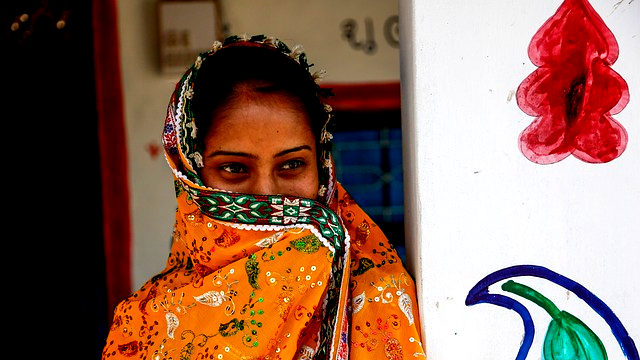Menstruation is an integral and normal part of human life, indeed of human existence. However, for long menstruation has been a taboo for the society often associated with behavioural restrictions. Anything related to menstruation is found difficult to discuss debate and demonstrate. Often, people have misconceptions and myths surrounding the menstruation, which need to be demolished.
Menstrual hygiene similar to menstruation is a sufficiently under-researched and a neglected area in India. Menstrual hygiene is fundamental to the well-being of women and girls and an important part of the basic hygiene, sanitation and reproductive health services, to which every women and girl has a right.
Overlooking of hygiene and health during menstruation can lead to several health and social outcomes; these include school absenteeism or drop-outs from school and cultural implications such as taboos around discussing the topic, exclusion from religious or spiritual pursuits, and total exclusion from daily activities during menstruation in various contexts.
Health-related outcomes that are believed to be linked with poor menstrual health often include urogenital infections including reproductive tract and urinary tract infections. Reports are widespread of the use of unsanitary absorbent and poor practices around washing and drying reusable absorbent. This is quite prevalent in the rural areas, at the bottom of the socio-economic pyramid, where women are left with sheer unhygienic choices during their menstrual period.
Despite such severe implications on well being of women across the country, very few measures have been taken by the government to meet the requirements of sanitary hygiene. After 2011, there has been no proper scheme drafted to address this issue. Rather it has been ignored substantially. However, many NGOs launched several campaigns to highlight the plight of women during menstruation, especially those living in the rural hinterland.
The scheme for promotion of menstrual hygiene among adolescent girls in rural areas was launched by the Government of India in 2011. The scheme aimed at covering 5 per cent of the country’s adolescent girl population (aged 10 to 19 years), i.e., 15 million girls in 152 districts across 20 States. Out of these, the supply of sanitary napkins in 107 districts was envisaged initially in a central supply mode, wherein sanitary napkins were to be supplied by the Government of India.
The scheme further aimed at ensuring that adolescent girls in the target group have adequate knowledge and information about menstrual hygiene and the use of sanitary napkins, that high quality, safe products are made available to them, and that environmentally safe disposal mechanisms are readily accessible.
However, this measure by the government did not have a powerful impact and hence the results were unsatisfactory. Menstrual hygiene is an issue that demands action on multiple fronts especially in rural areas where the condition is beyond imagination. A plethora of studies lay out the numbers: 23 per cent of Indian girls drop out of school when they hit menarche, 31 per cent of women miss 2.2 days of work per month when they menstruate, girls miss 20% of school days every year.
Merely doling out sanitary napkins without awareness and supportive infrastructure is unlikely to make any long-term difference against this heart- wrenching figure. Rural girls and women need more than just free pads during bloody days. They need a proper disposal system in their home and schools. Many women are scared to use toilets during these days in the fear of staining it.
Many of the activist’s groups, women organisations and NGOs working towards women issues have already demanded more than what government is actually providing during menstruation and to some extent, government had to bend down against their demand.
There are certainly more to what government can do to ensure better menstrual hygiene and make periods as easy for women as any other monthly activity. Some of the unexplored area, which needs equal and appropriate attention, are listed here:
- Menstrual hygiene doesn’t just begin and end at using sanitary napkins. In schools, the guidelines should be, women – both students and staff- must have “clean, easily accessible water and soap to wash themselves, wash their clothing if soiled, and wash menstrual cloths or reusable napkins”. Not only should the water be provided “inside the toilet”, a mug to dispense water should also be available. Besides this, a well-positioned mirror for checking stains, and other infrastructural facilities required to be provided in schools.
- Disposing of used napkins in the open, in water bodies, or in public places not only are tedious for sanitation workers, but they also have an adverse effect on the environment. It is urgently required that schools provide for disposal bins preferably within each cubicle for a collection of such waste. Further, these bins should have close fitting lids to minimise seepage of waste.
Many women face stigma and discrimination while menstruating from men, a problem that needs to be addressed. A guidelines should be drafted wherein young males should be educated about this issue. Their sensitisation on menstruation and women health will help clear several misconceptions that fly in the air in places where people can’t have their facts verified.This will help in better information among the individuals on this topic and menstruation will not remain a subject to whisper.
A scheme with better guidelines and an efficient team to track and trace the ground reality on the issue will definitely help in bringing down the school dropouts rates. Adolescent girls will not fear menstruation. Myths and misconceptions related to menstruation will gradually begin to disappear.
It’s time we know the right facts. It’s time we intervene responsibly. It’s time all girls in rural communities of the country get access to the right information on menstrual hygiene and menstruation does not remain a nightmare for rural women any more.
A silent admirer of galaxy and star follower, given a choice between human or books, would prefer latter with a cup of cold tea. A Jamia Millia Islamia alumni and an expert political consultant.

